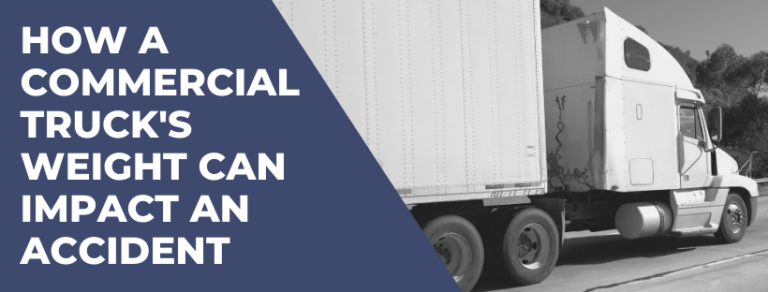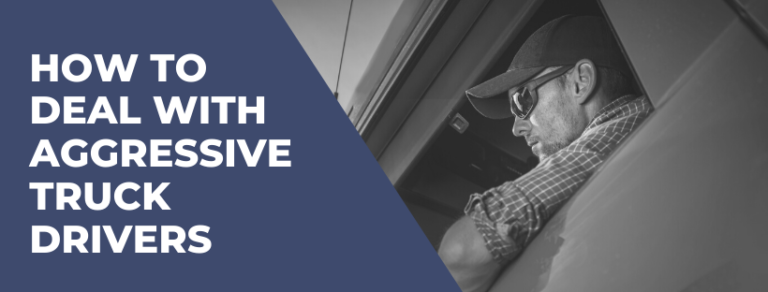Chances are likely you’ve driven alongside a big rig — also known as a tractor-trailer, 18-wheeler, or semi-truck — at some point in your life. But what happens if one crashes into you?
Truck accidents can be devastating and often result in serious injuries or even fatalities. If you’ve been in a truck accident in South Carolina, it’s crucial to understand your legal rights and know what steps to take.
In this blog, our Greenville truck accident lawyers outline the key things you should do after a truck accident in South Carolina.
1. Call the Police and Seek Medical Attention
The first thing you should do — if you’re able — is to call 911 to report the accident. The operator will ask you questions about your location, the nature of the accident, and any injuries sustained.
Every motorist has a duty of care to others on or near the road, including pedestrians, which means you should call the police even if you’re not sure another driver or witness might have already made the call. You never know if another driver is unconscious or physically restricted from calling the police.
You should move to a safe location, such as by the side of the road. However, you shouldn’t move if you think you may have sustained a spinal injury. Common signs of a spinal cord injury include pain or pressure in your back or neck, weakness or paralysis, and a numb or tingly feeling in your extremities (hands, fingers, feet, and toes).
In any case, you should stay at the accident scene and wait for the police to arrive. When they do, they’ll contain the area and begin investigating what happened, including speaking to you, the truck driver, and anyone else involved in the accident or who saw what happened.
This is vital, as the law enforcement officer will compile their observations into a police report, documenting who was involved, the injuries sustained, and what factors contributed to the crash. This means the police report can be vital evidence for a compensation claim, as it can help prove who was responsible.
You should also seek medical attention. Truck accidents are undoubtedly the most dangerous type of motor accident, especially if you’re in a smaller vehicle such as a car or motorcycle. The sheer size and weight difference often cause catastrophic injuries, and you’ll unlikely walk away from a truck accident completely unscathed. That said, adrenaline can mask your pain, and not all injuries — such as internal bleeding or traumatic brain injuries — are immediately apparent or present outwardly visible symptoms. Such injuries are also severe and can be fatal if left untreated.
Seeking medical attention is crucial for your health and well-being — and this should be the priority. However, it’s also crucial for any legal action you may be able to take after your truck accident. Your medical records can prove invaluable, as they show that your injuries resulted from your truck accident. This can prevent the other party from claiming the contrary — that you sustained your injuries later on in an unrelated event.
2. Document the Accident Scene
If you’re able to and it’s safe, you can spend your time waiting for emergency services to arrive and gather evidence in case you’re entitled to compensation.
Truck accident evidence deteriorates quickly. Witnesses can be difficult or impossible to get hold of, but their testimony can back up what happened. But sometimes, even if you can get a witness’s contact information, truck accident cases can take months or years, and memories fade. This means you need other evidence.
Take as many photographs or videos as possible. Your injuries, the overall scene, skid marks, hazards, and vehicle damage paint a clear picture of the event, and photos don’t lie. This evidence can also be useful for accident reconstructionists, who can reverse-engineer the accident to determine what factors led to it and who was at fault. The sooner you do this, the better, as evidence can become contaminated or disappear entirely once motorists are allowed back on the road.
You don’t need expensive camera equipment to document your accident — newer cell phones contain sophisticated cameras that can capture high-quality images.
3. Notify Your Insurance Company
The next step you should take after a truck accident in South Carolina is to report the accident to your insurance company, even if the accident wasn’t your fault, and you’re entitled to claim compensation from the responsible party’s insurance company.
Your insurer may be able to pay for your vehicle damage and some of your medical bills, depending on your policy. This can help remove the financial pressure while you focus on your recovery and wait for your settlement check.
Your insurance company may also be able to pay your bills and then recover the cost from the person or party responsible. This is known as insurance subrogation.
4. Consult an Experienced Truck Accident Attorney
Truck accidents can be complex — especially compared to car accidents, which tend to be more straightforward. Multiple parties can be responsible for a crash, including the truck driver, the truck driver’s employer, and a third party, such as a manufacturer.
This makes it vital to seek legal representation and protect your interests.
Our experienced South Carolina truck accident attorneys can help you by:
Gathering Evidence to Support Your Claim
Gather evidence to support your claim: A personal injury lawyer can secure the evidence you need to support your claim. Our attorneys have large networks comprising investigators, medical experts, accident reconstructionists, and more who can prove you were not responsible for the crash and testify to the severity and long-term impact of your injuries.
Calculate Your Damages
In a truck accident claim, you’re entitled to damages. These are split into two categories:
- Economic damages
- Non-economic damages
Economic damages are the verifiable losses you’ve incurred due to your accident, such as the cost of medical treatment, repairing property damage, and lost wages.
Non-economic damages are harder to calculate as they’re subjective. These compensate you for pain and suffering, mental anguish, loss of enjoyment, and loss of companionship or consortium if you are claiming compensation because you’ve lost a loved one in a truck accident.
Calculating your damages isn’t a case of choosing a random figure — you need evidence to prove your losses. This might be payslips to show your income, receipts for medical treatment, expert testimony from a doctor about the treatment you will need in the future and how long for, or a journal you’ve kept where you record how your injuries have impacted your daily life.
Our Greenville personal injury lawyers can help you determine how much you deserve.
Communicating with the Liable Party’s Insurance Company
Negotiating with the at-fault party’s insurance company is a crucial part of the claims process. Unfortunately, many insurance companies will lowball you in their offers or outright deny their client’s liability, which can make it difficult to get the compensation you deserve.
Our attorneys are experienced negotiators who know how insurance companies operate and how to yield a fair offer, whether you’re claiming from a single party or several.
Taking Your Case to Trial
It’s rare, but sometimes, negotiations fail. An insurance company might be stubborn and refuse to make a fair offer. You might decide that you want a higher payout, and your attorney confirms you have a strong case. Our truck accident lawyers are accomplished negotiators, but we’re also experienced trial lawyers. Unlike some other firms, we won’t settle at the first chance if we believe you have a strong case of success. We can support you through the entire trial process, from discovery (gathering and sharing evidence) and filing motions to jury selection and the trial itself.
Truck accidents can be devastating, but you’re not alone. Now, you know what to do after a truck accident in South Carolina. Our experienced Greenville truck accident attorneys are Upstate natives dedicated to protecting your legal rights and getting truck accident victims the compensation they deserve.





